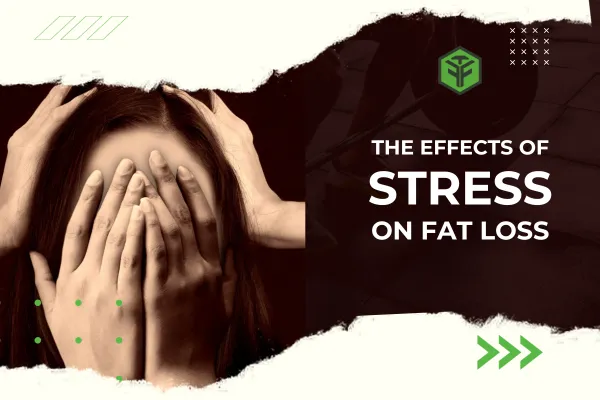BLOG
Elevate your fitness journey with our blog. Find expert tips, member stories, and essential knowledge. Discover, learn, and achieve your fitness goals with us.

The Science Behind Stress and Its Impact on Belly Fat
The Science Behind Stress and Its Impact on Belly Fat
Introduction
In our fast-paced modern world, stress has become an almost inevitable part of our lives. Whether it's work pressures, financial concerns, or personal challenges, stress can affect us in various ways. One area where stress can wreak havoc is on our waistlines. In this blog post, we will delve into the intricate relationship between stress and fat loss, with a particular focus on the dreaded belly fat region. Prepare to be enlightened by the science behind this connection.
The Stress Response and Its Role in Fat Storage
To understand how stress impacts fat loss, we must first comprehend the body's stress response, often referred to as the "fight-or-flight" response. When we encounter a stressor, our bodies release stress hormones, primarily cortisol. This hormone is crucial for survival as it prepares our bodies to respond to perceived threats.
However, chronic stress can lead to sustained high cortisol levels, which can have detrimental effects on our metabolism and fat storage. When cortisol levels remain elevated, it can encourage fat storage in various areas of the body, including the abdominal region.
The Cortisol-Belly Fat Connection
The connection between cortisol and belly fat lies in the presence of cortisol receptors in adipose tissue (fat cells), particularly in the abdominal area. When cortisol binds to these receptors, it triggers the storage of fat within these cells. This process is part of the body's evolutionary response to stress, where it stores energy reserves in preparation for potential famine or prolonged stress.
Furthermore, cortisol promotes the breakdown of muscle tissue for energy, which can slow down your metabolism. A slower metabolism means your body burns fewer calories at rest, making it easier to gain weight and harder to lose it, especially in the belly area.
Insulin Resistance and Stress
Another significant factor in the stress-belly fat equation is insulin resistance. Prolonged stress can lead to elevated blood sugar levels, which, in turn, can result in the development of insulin resistance. When your cells become resistant to insulin, they struggle to take in glucose for energy efficiently. This leads to higher insulin levels, which promote fat storage, particularly around the abdomen.
Emotional Eating and Stress
The emotional aspect of stress plays a significant role in fat gain, especially in the abdominal region. When people are stressed, they often turn to comfort foods that are high in sugar, fat, and calories. This emotional eating can lead to weight gain and a preference for storing fat around the belly.
Managing Stress for Effective Fat Loss
Now that we've explored the science behind stress and belly fat, it's crucial to discuss strategies for managing stress to promote effective fat loss:
Stress Reduction Techniques: Incorporate stress-reduction techniques such as meditation, deep breathing, yoga, or mindfulness into your daily routine. These practices can help lower cortisol levels and mitigate its impact on fat storage.
Regular Exercise: Engage in regular physical activity to counter the negative effects of stress. Exercise not only burns calories but also helps regulate cortisol levels and improve insulin sensitivity.
Healthy Eating Habits: Avoid emotional eating by maintaining a balanced and nutritious diet. Focus on whole foods, lean proteins, and plenty of fruits and vegetables to support your fat loss goals.
Adequate Sleep: Prioritize getting enough quality sleep. Sleep deprivation can lead to increased stress and disrupted hormone regulation, making it harder to lose belly fat.
Seek Support: Don't hesitate to seek support from friends, family, or a mental health professional if you're struggling with chronic stress. Talking about your stressors and emotions can help prevent emotional eating and improve your overall well-being.
Conclusion
The science is clear: chronic stress can have a significant impact on fat loss, particularly in the abdominal region. Understanding how stress affects your body is the first step toward managing it effectively. By incorporating stress-reduction techniques, maintaining a healthy lifestyle, and seeking support when needed, you can mitigate the effects of stress on belly fat and work towards a healthier, happier you. Remember, it's not just about looking good; it's about feeling good and being your best self.
Invest In Yourself!
You deserve to be happy and healthy!
Click the button below to see how we can help you
Click here to schedule a Free Intro. During your intro, we'll make a plan to help you reach your goals
TFF Fitness and Team Fighting Fit are trading names of Famfit Ltd ©2023
